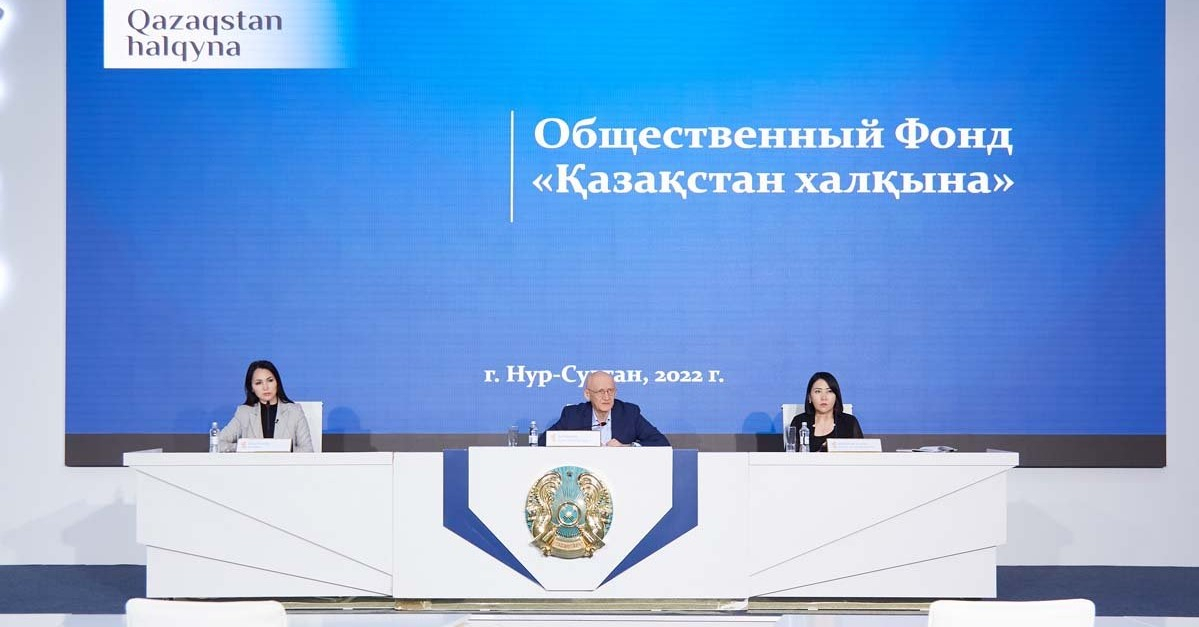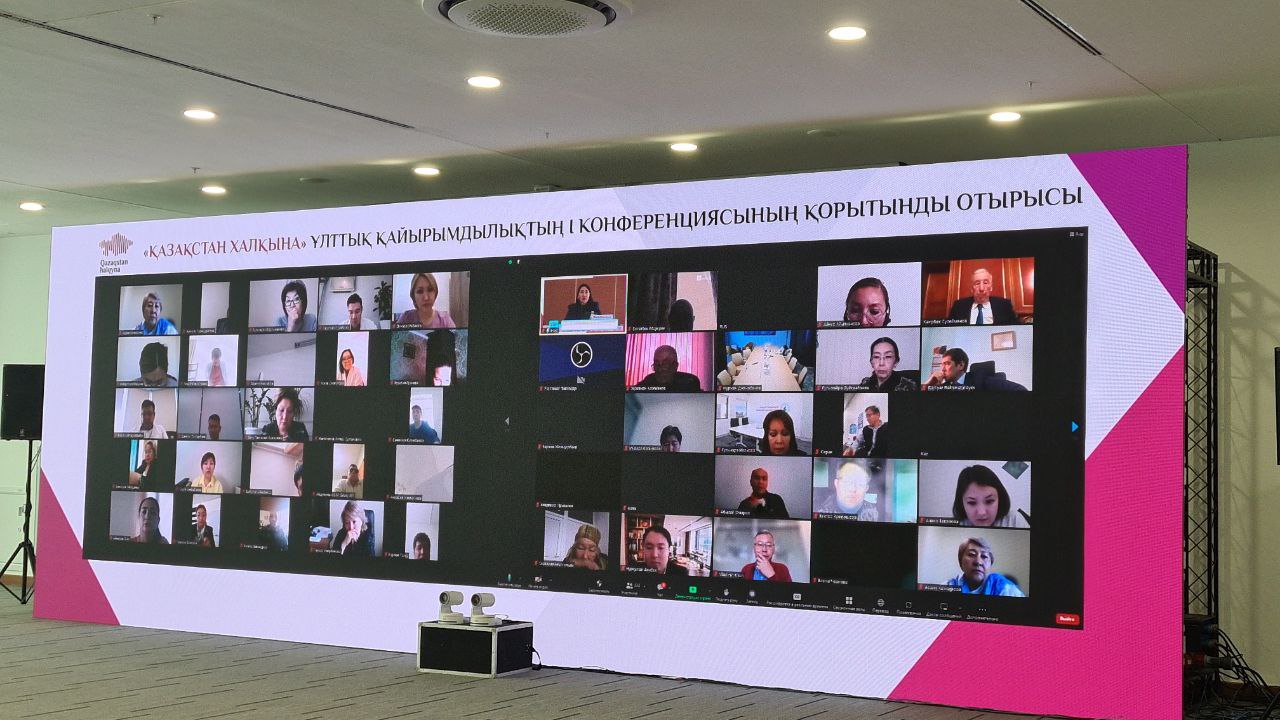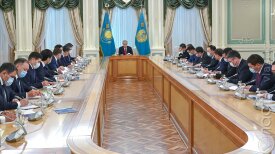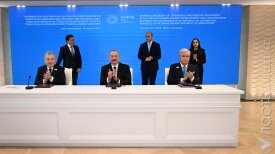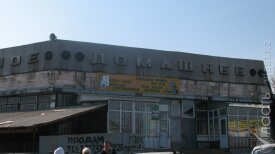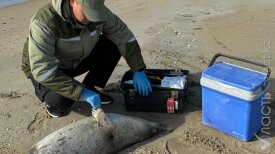The social fund Kazakhstan Khalkyna emerged in January in the aftermath of a nationwide protest that was suppressed by the authorities. Questions about its inner workings and transparency have arisen as the fund enters its 10th month of operations. Vlast looked at its internal documents and reached academics and human rights defenders to assess its activities so far.
On January 11, as special police forces and soldiers had retaken control of the streets and squares in Almaty and other cities across Kazakhstan after deadly clashes with protesters, President Kassym-Jomart Tokayev decreed the establishment of a social fund to meet the demands of the people for a fair and just redistribution system of welfare.
According to Tokayev, Kazakhstan Khalkyna (“For the People of Kazakhstan”), which is replenished through corporate and private donations, could serve as a supplement to state spending towards social needs. Outside of the purview of the government, the fund would have autonomy and a direct link to the citizens that it is supposed to serve, Tokayev said.
Yet, Tokayev failed to detail the precise mechanism through which citizen supervision would work. Instead, the government nominated a board of trustees that would be in charge of the fund’s activities.
Former Development Bank chairman and Minister of Finance Bolat Zhamishev was appointed to head Kazakhstan Khalkyna. Similarly to the Russian state fund “Circle of Kindness,” Zhamishev argued that Kazakhstan Khalkyna had been devised already before Qandy Qantar (‘Bloody January’, as the protest and repression are commonly known) with the objective to pay for the treatment of rare diseases in children. After January, the scope of the fund was expanded to include activities in sports and culture.
There appears to be a gap between Tokayev’s populist agenda and Zhamishev’s more conservative tone, when the latter said the fund should not be considered a tool for wealth redistribution.
Kazakhstan Khalkyna’s charter clearly states that “the activity of the fund does not remove responsibility from state bodies, and the fund does not become their ‘substitute’ in solving social issues that fall within their jurisdiction.”
At the moment, the fund has accumulated around 132.5 billion tenge ($280 million). One of the first projects approved by Kazakhstan Khalkyna is a program of educational grants: Up to 2,350 scholarships will be provided to pupils from low-income families and rural areas.
Reputation Laundering
Economist Kuat Akizhanov, a professor at KazGUU University in Astana, said this discrepancy showed the cracks of the system.
“State institutions do not work, or seem not to work in the interests of the people,” Akizhanov said. “When you need to take some humane action, but cannot really thoroughly solve social problems, that’s when you create a fund.”
In January, Tokayev blamed the previous regime for allowing a small circle of oligarchs to amass an immense wealth in the country. He quoted a 2021 KPMG report, which highlighted how just 162 people own 50% of the wealth in Kazakhstan.
Interviewed by Global Voices after the fund was created, Maurizio Totaro, PhD candidate at the University of Gent, said that Kazakhstan Khalkyna’s potential for a “de-oligarchization” is unlikely to be accomplished.
“By making this a charitable contribution, a company's donation to the fund becomes a way for the company to gain a certain moral legitimacy within the system. This way, oligarchs and big companies essentially legitimize their role in the “new course” that Tokayev claims to have embarked on,” Totaro said.
Akizhanov argued that the fund looked like a feudal tax.
Transparency and Accountability
Yevgeniy Zhovtis, head of the Kazakhstan International Bureau for Human Rights likened the fund to the Bota Foundation, established in 2008 to return $115 million in disputed assets. The human rights lawyer was among the board of experts to redistribute the funds to social projects.
“For the management of the Bota Foundation, several foreign NGOs had to compete under strict monitoring and regulations before they could have access to the funds and implement their social projects. In the case of Kazakhstan Khalkyna the competition and decision-making processes are unclear,” Zhovtis said.
Zhovtis said a healthy dose of skepticism is needed when assessing such projects.
“I am always suspicious when political technologists create certain kinds of organizations. Clearly, it was rather a PR campaign, because after the January events it was necessary to somehow respond to challenges and problems.”
Asked at a press briefing on September 16 whether the fund had helped the families of civilians who died in the January Events, Zhamishev said that 18 of them had already received payments. However, he also added that the fund is still waiting for the official list of innocent victims from the Prosecutor General's Office, to make sure that the recipients are not among those suspected of violent actions. According to official figures, 238 people died during Qandy Qantar.
Despite having set the machine in motion, with the first projects at the financing phase, the role and scope of Kazakhstan Khalkyna are still unclear.
Поддержите журналистику, которой доверяют.
